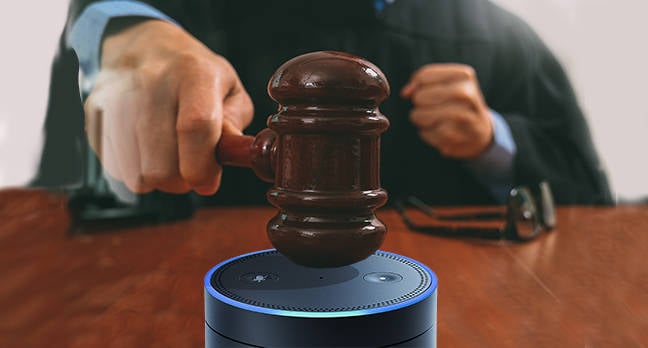BOOK THIS SPACE FOR AD
ARTICLE ADSetting the Stage
As the November 2020 presidential election approaches, it is worth imagining how a foreign adversary might attempt to intervene in the domestic political process. We have no evidence that any of the precise things we consider in this essay are actually happening—though some may well be. They are based on a review of what we know to be possible and plausible given what has occurred in the past and the vulnerabilities we can see clearly today. We don’t make specific assertions about the likelihood of any of these efforts or the probability of any having a meaningful effect.
Put simply, these things could happen; they might or might not work as intended, and, more importantly, we might or might not know of their existence immediately (or ever). Such uncertainty is, of course, part of the operation’s impact itself. We believe that what follows is a realistic, though ambitious, scenario for what could happen should the capabilities of Russian-style information warfare be deployed aggressively against the United States between now and January 20, 2021.
Our analysis is based on several assumptions. First, foreign actors will take advantage of a variety of technological instruments at their disposal, including social media, search engines, email and the like. Second, they will leverage the cacophony of political voices in the U. S. across the entire political spectrum. Third, they will prefer to exploit existing societal fault lines in the U. S. rather than attempting to create new ones.
It’s the third assumption that makes this more than just rampant speculation where the most imaginative and outrageous ideas get the most attention. We are assuming, instead, that adversaries are cost-sensitive and resource-constrained, and are looking for easy paths to disruption rather than the most sophisticated or elaborate ones. This, of course, is consistent with what we know about the cybersecurity landscape overall. Highly advanced attack modalities are the most scientifically interesting, but they are not generally the most criminally or politically interesting, simply because much less sophisticated and cheaper attacks will get the job done. The same is almost certainly true of attacks on the 2020 election.
The protagonist in this piece is named Philip Jennings, coincidentally the same name as the lead character in the FX television series The Americans. In that series, Phillip is a clandestine Russian KGB agent living in the U.S.—an “illegal” in spy novel parlance—and his cover is that of a suburban dad and travel agent in Washington, D.C.
Philip would likely have three goals in mind that would serve Russian interests:
To help lay a foundation for delegitimizing a Joe Biden presidency should Biden assume office on Jan. 20, 2021; and for the Republican Party to begin a de facto campaign to launch impeachment proceedings against Biden on Jan. 21, 2021—much as some of the Democratic establishment did with Donald Trump in 2017. To increase the likelihood of a second presidential term for Donald Trump and to assist in Trump’s efforts to minimize accountability for the misdeeds and misjudgments of his various friends, supporters and political allies, while highlighting the same types of misdeeds for Biden’s associates and family. To increase and amplify political and social polarization regardless of who wins the election in order to make Americans even more hostile and more angry toward each other, to increase cynicism about U.S. democracy at home and abroad and to enhance “epistemic fracture” that deprives political debates of a shared foundation of facts.Activities that advance any of these goals could be modified in ways that enhance and multiply negative economic consequences, conferring an additional advantage to Russia since an America in recession is likely an America in continued retreat from global engagement regardless of who occupies the White House. Some of these activities would also detract from the effectiveness of a national response to the continuing threat and spread of COVID-19. This would likewise provide an advantage to Russia, helping to turn world attention away from the spread of the novel coronavirus in Russia, and focus it directly on America’s catastrophic response. Other activities would help to focus global attention on the grassroots anti-racism protests and demonstrations across the U.S. that do not appear to be stopping anytime soon.
Philip is not capable of doing a significant fraction of what we describe below by himself. He will do some of it. But more importantly, because he has been in the United States for a long time, he has an intimate and intuitive familiarity with many aspects of the American political and cultural scene. Additionally, he has had the opportunity to immerse himself in a variety of online communities under different identities in anticipation of just such activity when the time is right. (Such careful preparation—undertaken years in advance—gives Philip a major advantage over others who might wish to act more opportunistically.) With secure communications channels back to Russia, he can suggest a range of actions that might be taken and provide strategic advice and guidance to his Russian handlers, who are capable of mobilizing a large number of other agents to act in accordance with such advice.
The most scientifically interesting cyberattacks are those against electronic voting machines, voter registration databases and vote-reporting systems, but Phillip probably isn’t going to aim at those tougher targets—simply because he doesn’t have to. As a suburban dad who runs a travel agency as a cover, he’s got plenty of access to much lower-hanging fruit that can be targeted with a moderate mix of technology and social engineering available to almost anyone. It’s worth noting that because Philip is in fact an American citizen, many of the activities we’ve imagined him taking here are protected by the Constitution.
Delegitimizing Joe Biden as President
As of early August, polling data shows Biden with a substantial lead over Trump, both nationally and in a state-by-state match-up. Although polling data before Labor Day is generally discounted as a predictor of election outcomes (and in 2016 Trump was substantially behind at this time yet went on to win the election), Philip would be foolish to discount the possibility that Biden could indeed be elected president in November. It is thus in his interest to plan for such an outcome, because a president deemed illegitimate by a significant fraction of the country will be severely constrained in the actions he could take to counter adversarial Russian activities. Here are some activities that Philip could orchestrate to delegitimize a Biden presidency:
Sow distrust about the election, calling it rigged, stolen, manipulated or simply fraudulent. Elements could include making non-specific accusations or spreading rumors about voter fraud, tampering with electronic voting machines or voter registration systems and casting doubt about whether provisional ballots will be counted. Given existing doubts about voter fraud, particularly on the right, documented vulnerabilities in electronic voting systems and evidence of Russian penetration of voter registrations, and the relative novelty of provisional ballots, an information operation to amplify these issues is likely to find receptive audiences. Amplification need not rely on a substantial volume of evidence. Even if only a few isolated instances actually happen—as they do in all elections—endless repetition of those stories can do much to keep them in the public eye of selected audiences. Entirely false stories can also be used and publicized, and, if and when taken down, new false stories with similar themes could be generated and used. Phillip knows that a looming question mark about the possibility of fraud is equally or more powerful than a known and certain manipulation, and he knows that efforts to suppress stories of this kind have been shown in some cases to actually multiply their presence on social media. Challenge the eligibility credentials of Biden’s running mate, depending on who it is. For example, Senator Tammy Duckworth—whom some have suggested as a plausible vice-presidential choice for Biden—was born in Thailand but with a father who was an American citizen. Under U.S. law, a child born under such circumstances is an American citizen from birth, but whether such a person satisfies the Constitutional requirement that the president be a “natural born” citizen of the United States is a contested point with few legal precedents and little legislative history to provide guidance. Of course, faked documents or testimony could be produced to cast doubt even on individuals that unambiguously satisfy the constitutional requirement. President Trump’s “birther” campaign against Barack Obama provides a ready blueprint for how to do this. Publicize and comment on “old” Biden stories involving insensitivity towards women, financial improprieties or scandals involving corporate influence. Some of these stories may have a grain of truth to them, while others would be invented out of whole cloth. But as long as repeating them and calling attention to them through social media and targeted advertising is easy to do, neither their truth value nor their age is as relevant as their saliency to politically-attuned audiences. These stories would lay the political groundwork for a future impeachment that begins on day one of th[…]
.png)












 Bengali (Bangladesh) ·
Bengali (Bangladesh) ·  English (United States) ·
English (United States) ·